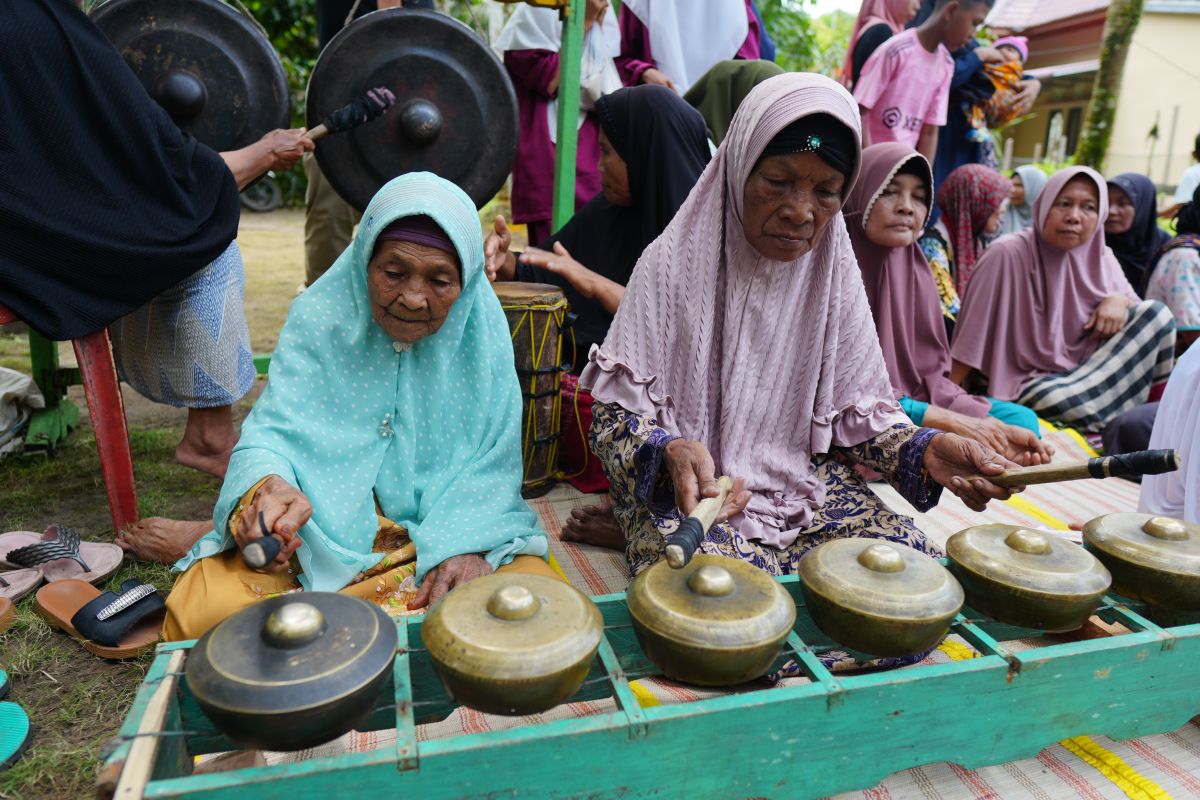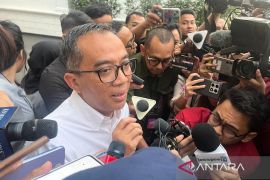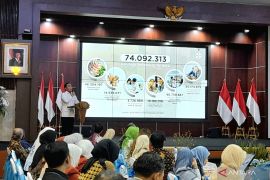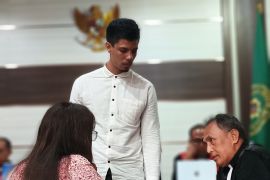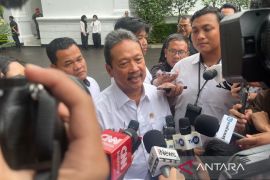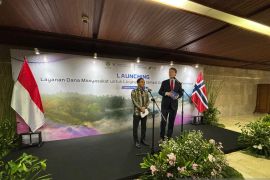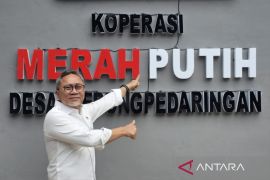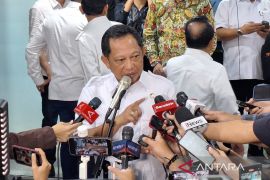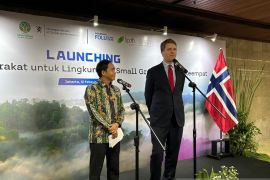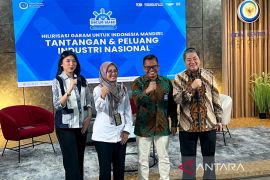It was the sixth day of the residency program when participants from within and outside the country listened attentively to the sounds of Gondang Oguang, which comprises several instruments, namely calempong (metal percussion instrument), gondang (drum), and gong.
Salman Azis, 58, an oral tradition preserver from Kampar, stated that singing does not accompany the Gondang Oguang performance, as a woman's voice is believed to be aurat (parts of the body that should be covered).
Nevertheless, players of Gondang Oguang are still singing in their heads.
"The voices of calempong players are a bit hoarse after playing because their hearts are always singing, though they do not make a sound," Azis, who was given the award of the 2023 Oral Literature Figure from the Riau Provincial Language Center, stated.
Gondang Oguang plays an important role in the life of the Kampar community.
The traditional musical art is played at important occasions, one of which is during the traditional ceremony of the inauguration of Ninik Mamak (traditional leader) and religious holidays.
It is said that if the traditional ceremony of the inauguration of Ninik Mamak is not accompanied by Gondang Oguang, then the inauguration is considered to be invalid or failed.
To play Gondang Oguang, the players must first seek permission from the traditional leader. On receiving the go-ahead, the instruments would be allowed to be taken from the storage house.
Research and incubation
Participants of the presidency program conducted research and an incubation from August 2 to August 27, 2024.
Azis was one of the coaches in the 2024 Cultural Advancement Residency in Riau themed "Pantun Musicalization and Oral Tradition."
Apart from Salman, Taslim bin Faham from Rokan Hulu was also appointed as a coach. Faham is a maestro of Riau's oral tradition, known as pengkoba, or tukang koba.
Koba, or bokoba, is an oral tradition of telling stories by singing.
Koba stories cover topics on life, nature, humans, animals, spirits and magical creatures, gods, supernatural powers, heaven, handsomeness and beauty, and prowess, and sometimes include funny stories.
Each koba has its own rhythm, such as in Rokan Hulu and Rokan Hilir, popular for the rantau kopar style characterized by a lilting and seductive tone.
The term bokoba means telling stories accompanied by the strains of the bebano drum.
Riau's two oral tradition maestros collaborated with a contemporary musical group called Riau Rhythm.
In this program, Riau Rhythm turned pantun, or poems that contain quatrains, into music.
The residency participants took part in six days of training with Riau Rhythm. The participants thereafter underwent an incubation period to create works.
The target is for participants to be able to create new musical compositions based on the research they conducted during the residency.
The participants were divided into three groups, with three works produced that were scheduled to be performed in a showcase in Pekanbaru on August 27 and a showcase in Jakarta on August 30.
"Our hope is that from the residency, they will create music with new methodologies, with new styles of the creation process," Rino Dezapaty, a composer and member of Riau Rhythm, stated.
Dezapaty emphasized the importance for composers to seamlessly blend imagination and research while composing music.
Riau Rhythm combines Malay musical elements with Western musical instruments.
They collect historical information, both oral and written, and then pour their ideas and thoughts into creating musical works.
Riau Rhythm does not only perform within the country but also abroad.
One of the residency participants, Aryo Seno Hool, 27, appeared highly enthusiastic about gaining new knowledge about the diversity of Indonesia's traditional arts.
Hool, who is a Yogyakarta-Australian musician, admitted having a sense of closeness with Indonesia's culture and having studied karawitan traditional music of Java, Sunda, and Bali during a program at the Indonesian Institute of the Arts (ISI) Yogyakarta.
He expressed hope to be able to learn more about music from Indonesia, especially from Riau.
"Riau's music is very different from that of Java. I have studied karawitan and others, but calempong is interesting. There is life behind the music, and it deserves to be introduced more widely," he remarked.
Throughout the residency, Hool and other international cultural players collaborated with 30 domestic cultural players who had earlier been selected.
In addition to Pekanbaru, Riau, some of the participants also partook in a residency program at other locations, namely in Cirebon, West Java, to learn about the Losari mask dance, and in Yogyakarta to learn about the traditional sport, jemparingan.
Indonesia's cultural diplomacy
The 2024 Cultural Advancement Residency Program was held by the Ministry of Education, Culture, Research, and Technology through the Directorate of Cultural Personnel and Institution Development.
This program targeted development for cultural players and cultural communities, both domestic and foreign, along with experts.
International cultural players participating in this program came from Australia, Mexico, Italy, India, Canada, the United States (US), Brunei Darussalam, the Netherlands, Malaysia, Colombia, India, Ecuador, Thailand, Greece, Egypt, the Philippines, Jordan, and Poland.
In addition to serving as a form of Indonesia's cultural diplomacy, the collaboration is an effort to expand and bolster the networks of Indonesia's cultural players on the international stage.
"The Cultural Advancement Residency program is an opportunity to preserve Indonesia's cultures as well as introduce them to the younger generations as a form of development of cultural players," Director of Cultural Personnel and Institution Development Restu Gunawan stated.
Related news: Indonesia seeks Malaysian clarification on tor-tor dance
Editor: Rahmad Nasution
Copyright © ANTARA 2024
